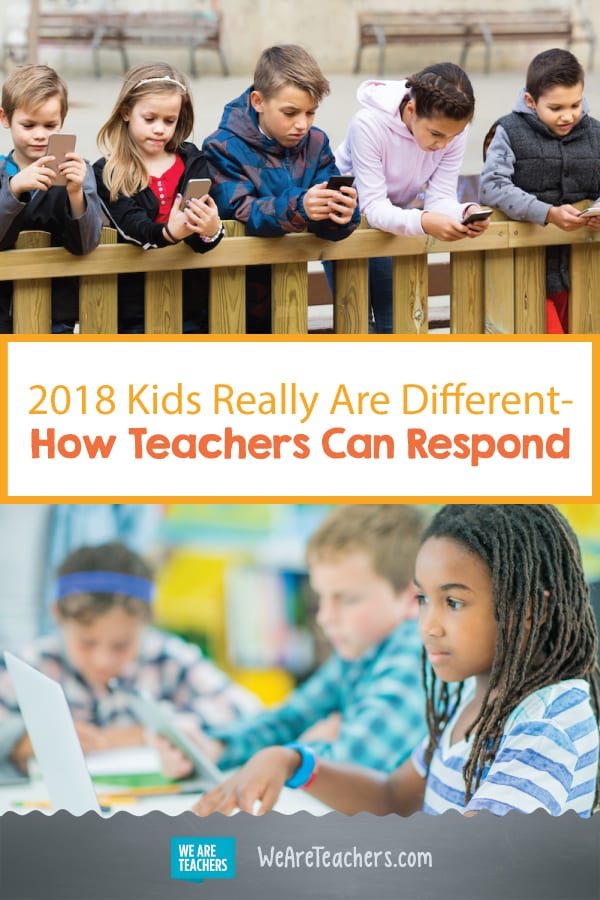Nothing elicits an eye roll faster from students (and younger teachers!) than a conversation that starts with “back when I was in school…” because it’s a fact that our students live in a very different world than the one in which we grew up, thanks to technology. But it’s also understandable that it can be frustrating, especially for teachers who’ve been around a long time, when students don’t respond to our tried and true methods.
There’s one thing educators need to agree on, and it’s the reality that we must root our instruction in the fast-paced world in which our students live, with an eye to the skills they will need to succeed in the future. And clinging to old norms and teaching methods just isn’t going to cut it.
Here are three facts about our students that we need to take into consideration as we think about the best way to shape our instruction.
1. There is an infinitely greater amount of information available to our students than we ever had to deal with.
Think about it, you can find the answer to any question you have about practically any topic in the world in seconds via technology. The problem is, there’s SO much information available, it can be overwhelming. How do you discriminate between what’s important and what’s fluff? What’s true and what’s baloney? How do you know what sources to trust and where to look for proof? Learning to evaluate and prioritize information quickly and efficiently is one of the most important life skills we will ever teach our students.
In addition, with the landslide of information available, it may seem to our students like everything’s already been said. Our challenge is to teach them to sort through and use the best information to create original works and solve problems in innovative ways.
[contextly_auto_sidebar]
2. Access to so much information can lead to a tendency to skim the surface.
The last thing we want is for our students’ knowledge of the world to be a “mile wide and inch deep”, so to speak. We need to help our students build their muscles (and tolerance) for sticking with a problem and dig deeper—to push them to go beyond instant gratification. We must provide direct instruction for methods and strategies that encourage focused problem-solving. To teach our students to not just rely on what’s already out there, but to ask the next big question and approach problems from different perspectives.
3. Being connected to technology can take precedence over connecting in person.
A quick survey of social media these days reveals a growing identification with being an introvert. Well, no wonder. Technology makes it easy for people (and we’re not just talking about students here) to become absorbed in their own world, picking and choosing to identify with ideas and opinions that already jibe with who they are. Problem is, the connections we make through technology are not always the most authentic. And how do we grow as humans if we always stay in a homogenous safe zone?
It’s imperative for teachers to build structured social interaction into classwork to teach kids how to make real connections, even if they get pushback—”We hate group work!” Negotiating the real world means working with and being open to other people’s ideas and opinions. Building collaboration and teamwork into the curriculum may take some students outside of their comfort zone, but if it has to be forced, so be it. They’ll thank us later.
Bottom line:
Maybe our students don’t have the same attention span that we did, but they know how to do incredible things that weren’t even invented when we went to school. Maybe they have a harder time working collaboratively, but they all have so much to bring to the table. The reality is we can’t teach the same way we learned. That does a disservice to our students and leaves them ill-prepared for the future.
How do you think kids have changed? Come and share in our WeAreTeachers HELPLINE group on Facebook.
Plus, hilarious truths only veteran teachers understand.


